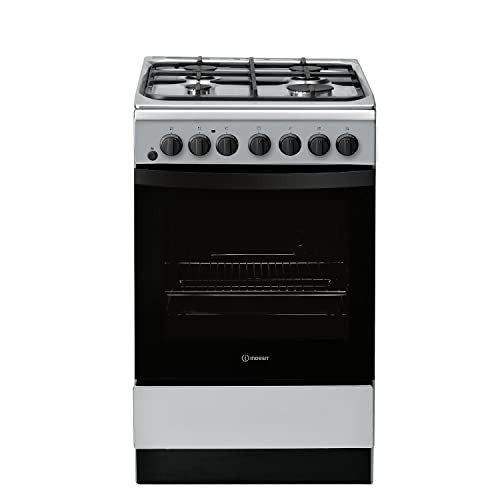The Comprehensive Guide to Sales Ovens: Understanding Their Importance, Types, and Best Practices
Sales ovens, a classification of industrial cooking devices, are key players in the culinary and foodservice industry. These home appliances, created to prepare food in large amounts efficiently, are essential in dining establishments, catering services, and other food facilities. This post delves into the importance of sales ovens, their types, and best practices for choosing and using them effectively.
What Are Sales Ovens?
Sales ovens, broadly specified, are cooking gadgets used mostly in commercial cooking areas to prepare, bake, or heat numerous food items at scale. Their style allows them to deal with higher volume cooking compared to standard property ovens. Provided the nature of food service, sales ovens often incorporate sophisticated innovations that promote speed, performance, and even cooking.
Importance of Sales Ovens in the Food Industry
Sales ovens play a pivotal function in food production for numerous reasons:
- Efficiency: Sales ovens can cook food quicker and uniformly than conventional ovens, allowing chefs to prepare meals in less time.
- Consistency: With precise temperature level controls, sales ovens ensure that the food is prepared uniformly each time, preserving quality throughout thousands of portions.
- Flexibility: Many sales ovens can handle various cooking approaches consisting of baking, roasting, broiling, and even steaming, making them ideal for diverse menus.
- Energy Savings: Modern sales ovens are typically designed to be energy-efficient, minimizing functional costs for companies.
Types of Sales Ovens
The marketplace offers a variety of sales ovens, each matched for particular cooking needs and kinds of food. Here are the most common types:
| Type of Oven | Description | Best For |
|---|---|---|
| Convection Ovens | Use a fan to circulate hot air, making sure even cooking. | Baking and roasting items. |
| Combi-Ovens | A mix of convection and steam cooking, offering versatility in cooking methods. | Varied menus needing steaming and baking. |
| Conveyor Ovens | Use a moving belt to continually cook food, perfect for high-volume operations. | Junk food and pizza. |
| Deck Ovens | Function different compartments (decks) that can be independently controlled, offering high performance. | Artisan bread and pastries. |
| Rotisserie Ovens | Developed to gradually roast meat on a spit, supplying tender and juicy results. | Roasted meats. |
Selecting the Right Sales Oven
Picking the suitable sales oven for a particular service requires consideration of numerous factors:
- Volume Needs: Assess the volume of food that requires to be prepared. Ovens Online implies going with conveyor or combi-ovens.
- Menu Diversity: Understanding what kind of dishes will be cooked can guide the choice procedure. For instance, a bakeshop might require a deck oven, while a diner might benefit from a convection oven.
- Space Availability: Measure kitchen space to guarantee the ovens fit effectively and have required ventilation.
- Budget: Commercial ovens can differ considerably in price, so establish a spending plan that considers long-term operational cost savings.
- Energy Efficiency: Opt for ovens that have energy rankings to keep energy expenses workable.
Best Practices for Using Sales Ovens
Effectively running a sales oven includes more than simple use. Here are some best practices to remember:
- Regular Maintenance: Schedule regular upkeep to tidy and check the performance of the oven. This guarantees longevity and effectiveness.
- Pre-heating: Always preheat the oven to the wanted temperature before positioning food inside for constant cooking outcomes.
- Use Thermometers: For accuracy, utilize an oven thermometer to ensure that temperatures stay constant, specifically for baking.
- Follow Cooking Times: Adhere to advised cooking times based upon the kind of food being prepared. Adjustments might be required for various ovens.
- Avoid Overcrowding: Ensure adequate space around food items in the oven to permit for proper air blood circulation.
The Future of Sales Ovens
As technology advances, so do the capabilities of sales ovens. Developments such as clever innovation, energy-efficient designs, and enhanced security features are becoming more prominent. These advancements promise to enhance cooking efficiency while also fulfilling sustainability objectives.
Frequently Asked Questions about Sales Ovens
Q1: How do I tidy my sales oven?
A: Regular cleansing involves eliminating any food debris, cleaning down surface areas with non-corrosive cleaners, and following specific cleansing recommendations from the maker.
Q2: What's the lifespan of a business oven?
A: Typically, a well-maintained business oven can last anywhere from 10 to 20 years, depending on usage and maintenance.
Q3: Can sales ovens be used for baking?
A: Yes, many types of sales ovens, particularly convection and deck ovens, are particularly developed for baking a variety of products.
Q4: Are there energy-efficient choices for sales ovens?
A: Yes, a number of producers provide energy-efficient designs that reduce energy usage without compromising performance.
Q5: How typically should I conduct upkeep on my sales oven?
A: It's advisable to conduct routine maintenance checks every month or quarter, depending upon use levels. Additionally, a thorough evaluation should happen a minimum of every year.
Sales ovens are essential in the modern-day culinary landscape. Their ability to prepare big amounts of food efficiently makes them essential for dining establishments, catering services, and other food establishments. By comprehending the numerous types, picking the ideal oven, and adhering to best practices, food service businesses can enhance their cooking processes, enhance their offerings, and ultimately delight their customers with impressive culinary productions.

